Traveling to a new country is exciting, but managing your money can be tricky. Did you know that over 60% of travelers face challenges with currency exchange or payment methods abroad? This is especially true in places where cash is king, and credit cards aren’t widely accepted.
In this part of West Africa, the local currency is the West African CFA Franc. Understanding how to navigate this currency can save you time and stress. Whether you’re exploring vibrant markets or booking a hotel, knowing your payment options is key.
Travel money cards like Wise and Chime offer secure and convenient ways to manage your funds. They help you avoid high fees and ensure you’re prepared for any situation. Ready to dive deeper? Let’s explore how to make your trip seamless and stress-free.
Understanding Guinea-Bissau’s Currency Landscape
Navigating the financial landscape of a new destination can be both exciting and challenging. In this part of West Africa, the West African CFA Franc (XOF) is the official currency. Knowing how it works can make your trip smoother and more enjoyable.
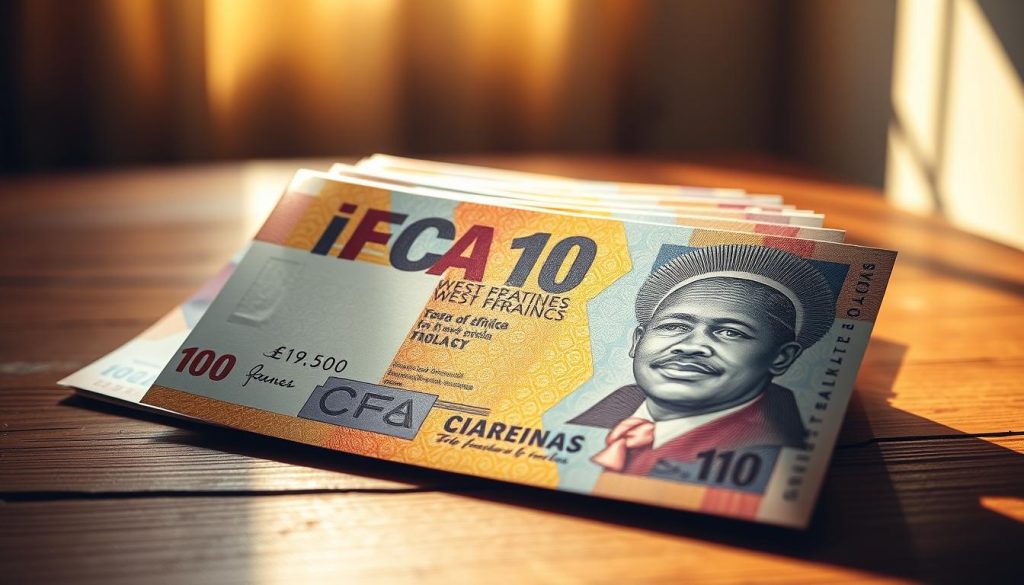
The Role of the West African CFA Franc (XOF)
The West African CFA Franc has a rich history. It was introduced in 1945 and is used by eight countries in the region, including Guinea-Bissau. This currency is pegged to the Euro, which helps stabilize its value. For travelers, this means predictable exchange rates and fewer surprises.
In local markets, cash is king. While some hotels and larger businesses may accept credit cards, smaller vendors often prefer cash. Carrying the local currency ensures you’re prepared for any situation.
Exchange Rates and Local Currency Dynamics
Exchange rates can vary, but the mid-market rate is the most accurate. This is the rate banks use when trading currencies. For example, 1 Euro equals approximately 656 CFA Francs. Knowing this rate helps you avoid overpaying when exchanging money.
Here’s a quick comparison of exchange rates and fees:
| Service | Exchange Rate | Fees |
|---|---|---|
| Banks | Mid-market rate | 3-5% |
| ATMs | Mid-market rate | 2-4% + withdrawal fee |
| Travel Money Cards | Mid-market rate | 1-2% |
Using a travel money card can save you money. These cards offer competitive rates and lower fees compared to traditional banks. They’re also secure and convenient, making them a great option for managing your spending abroad.
By understanding the local currency and exchange dynamics, you can focus on enjoying your trip without financial stress.
Choosing the Best Travel Money Card for Guinea-Bissau
Finding the right travel money card ensures smooth spending on your journey. With so many options available, it’s important to compare features, fees, and benefits to make an informed choice. Whether you’re exploring markets or booking a hotel, the right card can save you time and money.
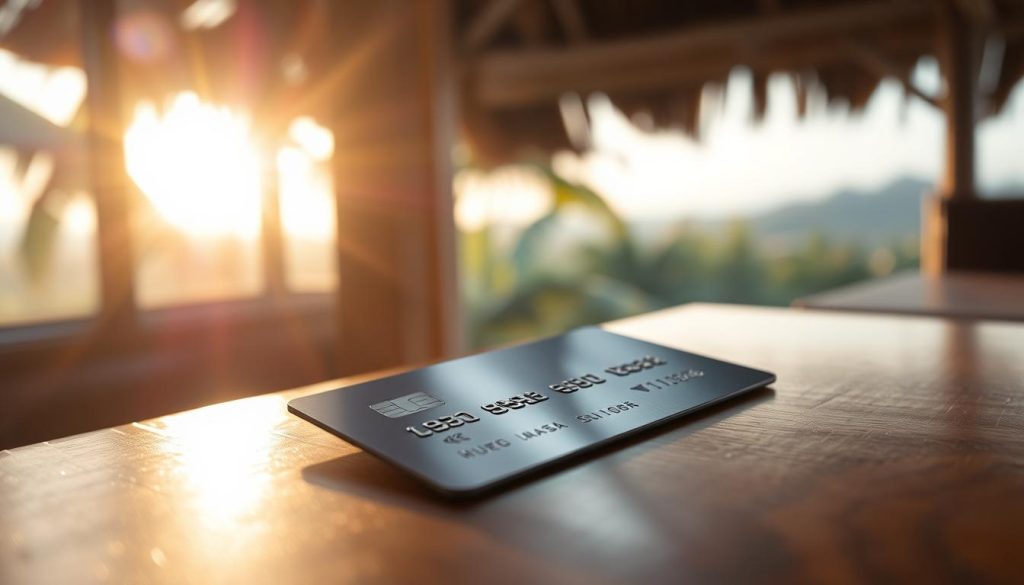
Key Features of Top Travel Cards
Travel money cards like Wise, Chime, Monzo, and Netspend offer unique benefits. These cards provide mid-market exchange rates, low fees, and secure transactions. Many also come with user-friendly apps for easy management.
For example, Wise allows spending in over 50 currencies with minimal conversion fees. Chime offers fee-free ATM withdrawals, while Monzo provides real-time spending notifications. Netspend is ideal for those who prefer prepaid options with no credit checks.
Comparing Card Options and Their Fees
When choosing a card, consider fees like foreign transaction charges and ATM withdrawal costs. Here’s a detailed comparison of popular options:
| Card | Foreign Transaction Fee | ATM Withdrawal Fee | Exchange Rate |
|---|---|---|---|
| Wise | 0.5% | $1.50 per withdrawal | Mid-market rate |
| Chime | 0% | $0 | MasterCard rate |
| Monzo | 0% | $0 (up to $200/month) | MasterCard rate |
| Netspend | 3.5% | $2.50 per withdrawal | Visa rate |
Selecting the best card depends on your travel needs. If you plan to withdraw cash frequently, Chime or Monzo might be ideal. For multi-currency spending, Wise offers competitive rates. Always check for hidden fees and ensure the card is widely accepted in your destination.
Guinea-Bissau: Ultimate Travelers Guide to Currencies & Payments
Managing your finances while traveling doesn’t have to be stressful—especially with the right tools. Choosing a reliable travel money card can make all the difference. Let’s explore trusted providers and how to set up and manage your card effectively.
Overview of Trusted Providers
When it comes to managing your money abroad, several providers stand out. Wise, Chime, Monzo, and Netspend are popular choices, each offering unique benefits. Here’s a quick look at what they bring to the table:
- Wise: Supports 40+ currencies with mid-market exchange rates and low fees.
- Chime: No foreign transaction fees and fee-free ATM withdrawals.
- Monzo: Real-time spending notifications and no ATM fees up to $200/month.
- Netspend: Prepaid options with no credit checks, though fees may apply.
Setting Up and Managing Your Travel Money Card
Setting up a travel money card is straightforward. Most providers offer mobile or desktop apps for easy management. Here’s how to get started:
- Download the app and create an account.
- Order your card, which typically arrives within 7-10 days.
- Load funds in your preferred currency, such as USD or XOF.
- Activate your card and start using it for purchases or ATM withdrawals.
Once your card is active, managing it is simple. Use the app to track spending, convert currencies, and monitor your balance. For example, with Wise, you can convert USD to XOF at competitive rates with full fee transparency.
To ensure security, always keep your card details private. Enable notifications for transactions and report any suspicious activity immediately. Carrying a backup credit card or cash is also a smart move for added flexibility.
By choosing the right provider and following these steps, you can enjoy a hassle-free trip with peace of mind.
Securing Convenient Payment Methods in Guinea-Bissau
Modern travel demands modern payment solutions, especially in unique destinations. While cash remains a staple, mobile wallets and contactless payments are gaining traction. These methods offer added convenience and security, making them ideal for travelers.
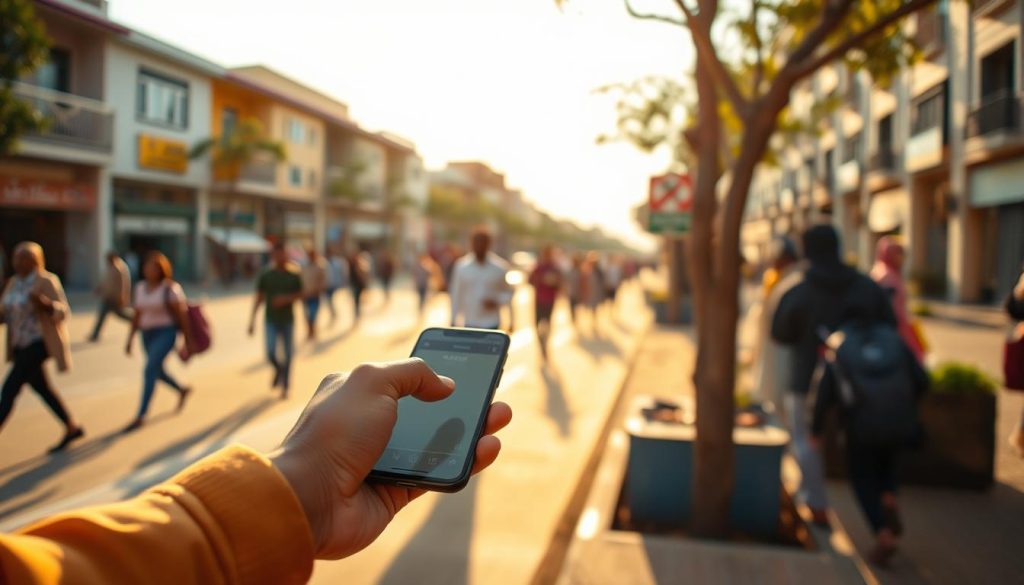
Why Mobile Wallets Are Growing in Popularity
Mobile wallets like Apple Pay and Google Pay are transforming how people spend abroad. They eliminate the need to carry large amounts of cash and reduce the risk of theft. In Guinea-Bissau, these options are becoming more common in hotels, restaurants, and markets.
For example, many hotels now accept contactless payments, allowing you to check in seamlessly. Restaurants in urban areas are also adopting this trend, making dining out more convenient.
Compatibility with Travel Cards
Most travel money cards are compatible with mobile wallet apps. Cards like Wise and Chime can be linked to your smartphone for easy access. This integration ensures you can pay with just a tap, whether you’re shopping or dining.
Here’s a quick guide to setting up your card for contactless payments:
- Download the mobile wallet app (e.g., Apple Pay, Google Pay).
- Add your travel card details securely.
- Verify your card and start using it for contactless transactions.
Ensuring Your Device Is Ready
Before your trip, ensure your device supports contactless payments. Most modern smartphones are equipped with NFC technology, which is essential for this feature. Additionally, check if your card issuer supports mobile wallet integration.
By embracing these modern payment methods, you can enjoy a smoother and more secure travel experience. Whether you’re exploring local markets or relaxing at a hotel, mobile wallets and contactless payments are the way to go.
| Payment Method | Benefits | Where to Use |
|---|---|---|
| Mobile Wallets | Secure, convenient, no need for cash | Hotels, restaurants, markets |
| Contactless Cards | Quick transactions, reduced fees | ATMs, shops, transportation |
| Cash | Widely accepted, no tech required | Small vendors, rural areas |
“The future of payments is digital, and travelers are at the forefront of this shift.”
Navigating ATM Fees and Cash Withdrawals
Handling cash withdrawals efficiently can make your trip smoother and more cost-effective. In many places, ATMs are the easiest way to access local currency, but fees can add up quickly. With the right strategies, you can minimize these costs and focus on enjoying your journey.
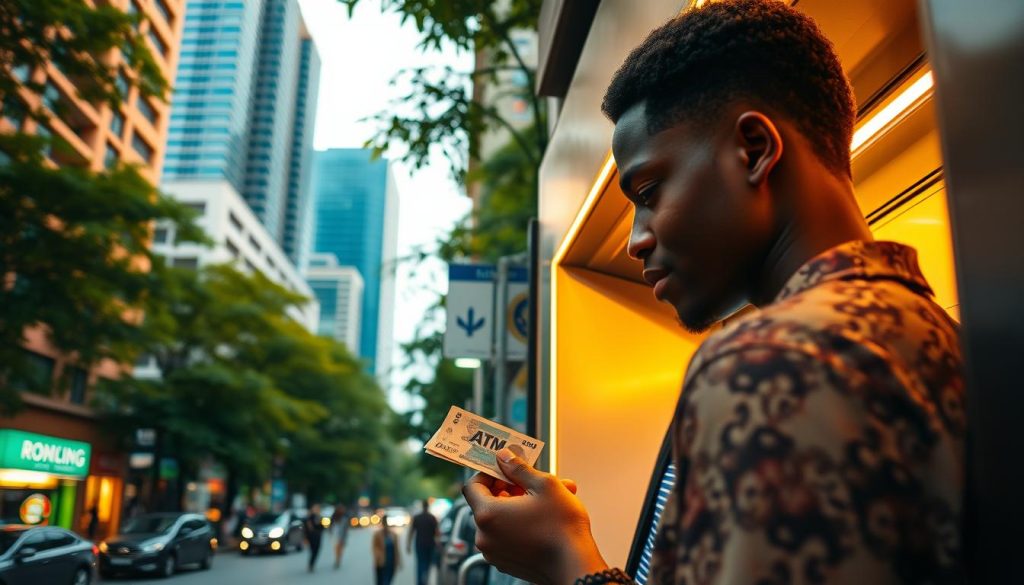
Tips to Avoid Excessive ATM Fees
One of the best ways to save money is by choosing a travel money card with low or no ATM fees. Cards like Wise and Chime offer fee-free withdrawals, making them ideal for frequent travelers. Always check your card’s fee structure before your trip.
Another tip is to withdraw larger amounts less frequently. This reduces the number of transactions and lowers overall fees. Be mindful of local ATM operators, as some may charge additional fees. If you see a warning about extra charges, consider finding another machine.
Smart Withdrawal Strategies Abroad
Planning your cash needs in advance can save you time and money. Estimate how much you’ll need for daily spending and withdraw accordingly. This avoids repeated trips to the ATM and keeps your costs down.
Always choose to withdraw in the local currency to avoid poor exchange rates and Dynamic Currency Conversion (DCC) fees. For example, in Guinea-Bissau, withdrawing West African CFA Francs directly is more cost-effective than converting USD.
| Strategy | Benefit |
|---|---|
| Use fee-free travel cards | Reduces ATM withdrawal costs |
| Withdraw larger amounts | Minimizes transaction fees |
| Choose local currency | Avoids poor exchange rates |
| Check for hidden fees | Prevents unexpected charges |
By following these tips, you can manage your money efficiently and avoid unnecessary expenses. Whether you’re exploring markets or relaxing at a hotel, smart withdrawal strategies ensure a stress-free experience.
Understanding Currency Conversion and Exchange Rates
Understanding currency exchange can make your trip smoother and more cost-effective. Whether you’re converting USD to West African CFA Francs or another currency, knowing how exchange rates work is essential. This knowledge helps you avoid hidden fees and get the most value for your money.
Benefits of the Mid-Market Exchange Rate
The mid-market exchange rate is the rate banks use when trading currencies. It’s the fairest and most transparent rate available. Unlike traditional banks or exchange centers, which add fees and markups, the mid-market rate ensures you get the best value for your money.
For example, if you’re converting USD to West African CFA Francs, the mid-market rate might be 656 XOF per dollar. Traditional banks could offer a rate of 630 XOF, costing you more in the long run. Using a travel money card that offers mid-market rates can save you significant costs.
How to Optimize Currency Exchange via Cards
Travel money cards like Wise and Chime are excellent tools for optimizing currency exchange. These cards convert your funds at mid-market rates, avoiding the high fees charged by banks or exchange centers. Here’s how to make the most of them:
- Lock in Rates: Some cards allow you to lock in exchange rates in advance, protecting you from fluctuations.
- Convert in Advance: If you know you’ll need local currency, convert your funds before your trip to avoid last-minute fees.
- Monitor Fees: Always check for hidden fees, such as foreign transaction charges or ATM withdrawal costs.
By using these strategies, you can ensure your spending goes further. For instance, converting USD to West African CFA Francs in advance can give you more purchasing power for daily expenses like hotel stays or meals.
“The mid-market exchange rate is the gold standard for fair currency conversion.”
Common pitfalls in currency exchange include using airport kiosks or unverified exchange centers, which often charge high fees. Stick to trusted methods like travel money cards or reliable currency converters to avoid these traps. With the right approach, you can focus on enjoying your trip without worrying about money matters.
Traveling Safety and Preparing for Guinea-Bissau
Ensuring your safety while traveling is as important as planning your itinerary. Whether you’re exploring vibrant markets or relaxing at a hotel, being prepared can make your trip smoother and more enjoyable. Here’s how to stay safe and ready for any situation.
Essential Travel Safety Precautions
Before you embark on your journey, take these steps to ensure a safe and hassle-free experience:
- Get Vaccinated: Malaria is a significant risk in this region. Consult your doctor for necessary vaccinations and carry anti-malarial medication.
- Purchase Travel Insurance: This covers unexpected medical expenses, trip cancellations, and lost belongings.
- Secure Important Documents: Keep your passport, visa, and travel money card in a safe place. Consider making digital copies as backups.
While exploring, stay aware of your surroundings. Petty crime, such as pickpocketing, can occur in crowded areas. Avoid displaying large amounts of cash or valuables in public.
Handling Local Challenges
ATMs in Guinea-Bissau can be unpredictable. Some may charge high fees or run out of currency. To avoid issues:
- Withdraw larger amounts less frequently to minimize transaction fees.
- Use a travel money card with low or no ATM fees, such as Wise or Chime.
- Always choose to withdraw in the local currency to avoid poor exchange rates.
Political stability can vary, so stay informed about local conditions. Keep emergency contacts handy, including your country’s embassy or consulate.
Staying Healthy and Informed
Health risks like malaria and poor road conditions require extra caution. Drink bottled water, avoid street food, and use mosquito repellent. If driving, be prepared for unpredictable behavior on the roads.
By following these tips, you can focus on enjoying your trip without unnecessary stress. Remember, preparation is the key to a safe and memorable journey.
Budgeting and Cost-Saving Tips for Your Trip
Planning your budget for a trip can make all the difference in how you experience your journey. By managing your spending wisely, you can enjoy your adventure without financial stress. Here’s how to make the most of your money while exploring this vibrant part of the world.
Managing Daily Expenses and Local Spending
Daily expenses can add up quickly, but with a few smart strategies, you can keep your costs under control. Start by identifying common expenses like hotel stays, meals, and transportation. Here are some practical tips:
- Accommodation: Book your stay in advance to secure better rates. Consider loyalty programs that offer perks like free nights or waived resort fees.
- Food: Save by shopping at local grocery stores instead of dining out. This avoids additional taxes and tips.
- Transportation: Use public transport or shared rides to cut down on costs. Walking is also a great way to explore and save.
Strategies to Avoid Hidden Fees
Hidden fees can eat into your budget, but you can avoid them with the right approach. One of the best ways is to use a travel money card that offers competitive exchange rates and low fees. Here’s how to make it work for you:
- Choose the Right Card: Look for cards with no foreign transaction fees and low ATM withdrawal costs.
- Monitor Exchange Rates: Use cards that offer mid-market rates to get the best value for your currency.
- Avoid Dynamic Currency Conversion: Always choose to pay in the local currency to avoid extra charges.
By planning ahead and tracking your spending, you can enjoy a memorable trip without breaking the bank. Whether you’re exploring markets or relaxing at a hotel, these tips will help you stay on budget.
Conclusion
Exploring a new destination is an adventure, but managing your money smartly ensures a stress-free experience. Throughout this guide, we’ve highlighted the importance of understanding local currency, choosing the right card, and using modern payment methods to make your trip seamless.
Travel money cards like Wise and Chime offer secure, cost-effective ways to handle your spending. They help you avoid high fees and ensure you’re prepared for any situation. By following budgeting tips and safety precautions, you can focus on enjoying your journey without unnecessary stress.
Remember, careful preparation is the key to a successful trip. Whether you’re withdrawing cash from an ATM or booking a hotel, understanding fees and exchange rates can save you both money and hassle. Now, it’s time to plan confidently and explore the wonders of this vibrant country with ease.
The above is subject to change.
Check back often to TRAVEL.COM for the latest travel tips and deals.
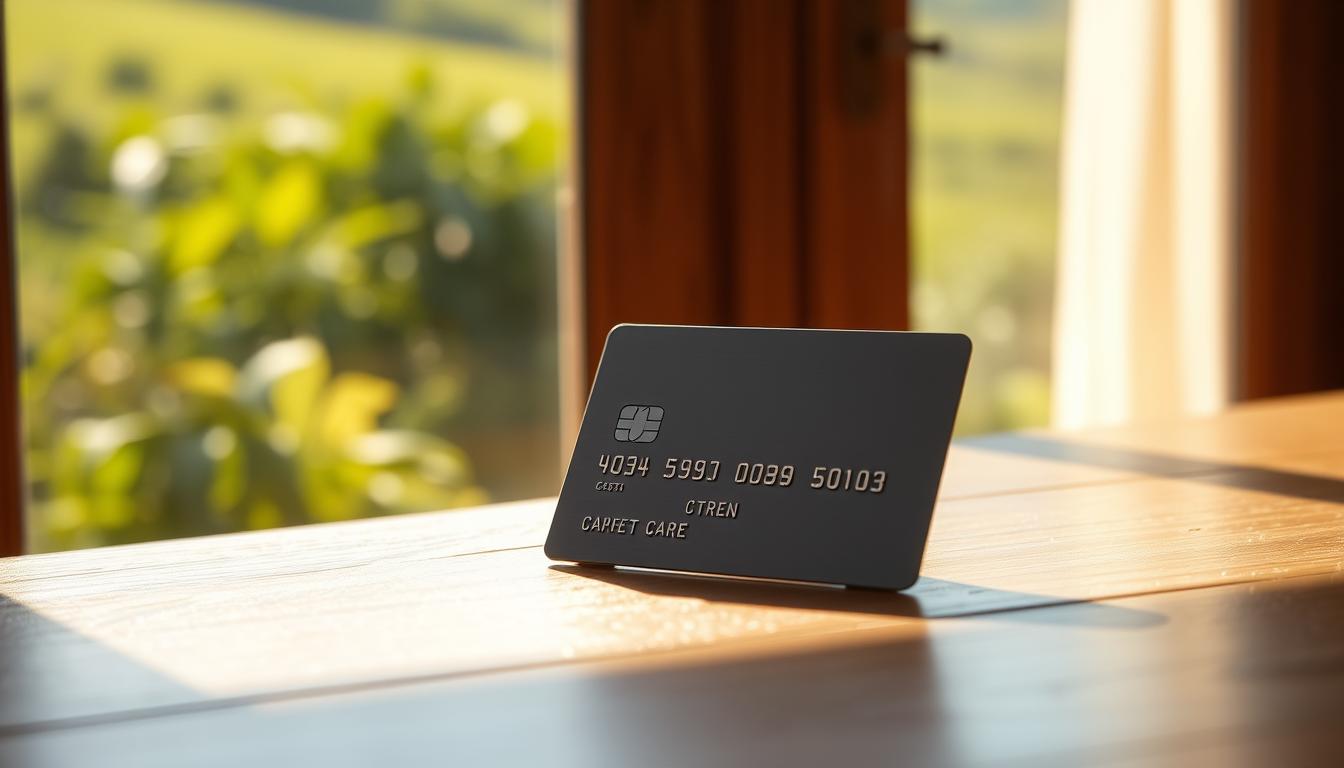
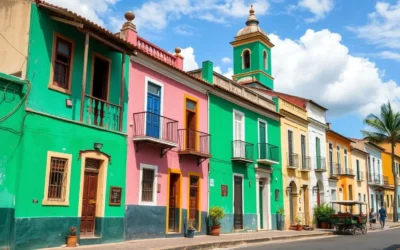

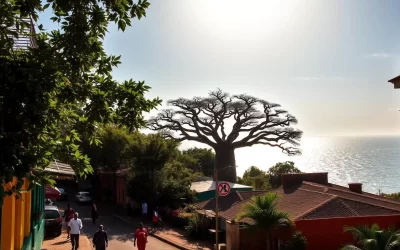



0 Comments